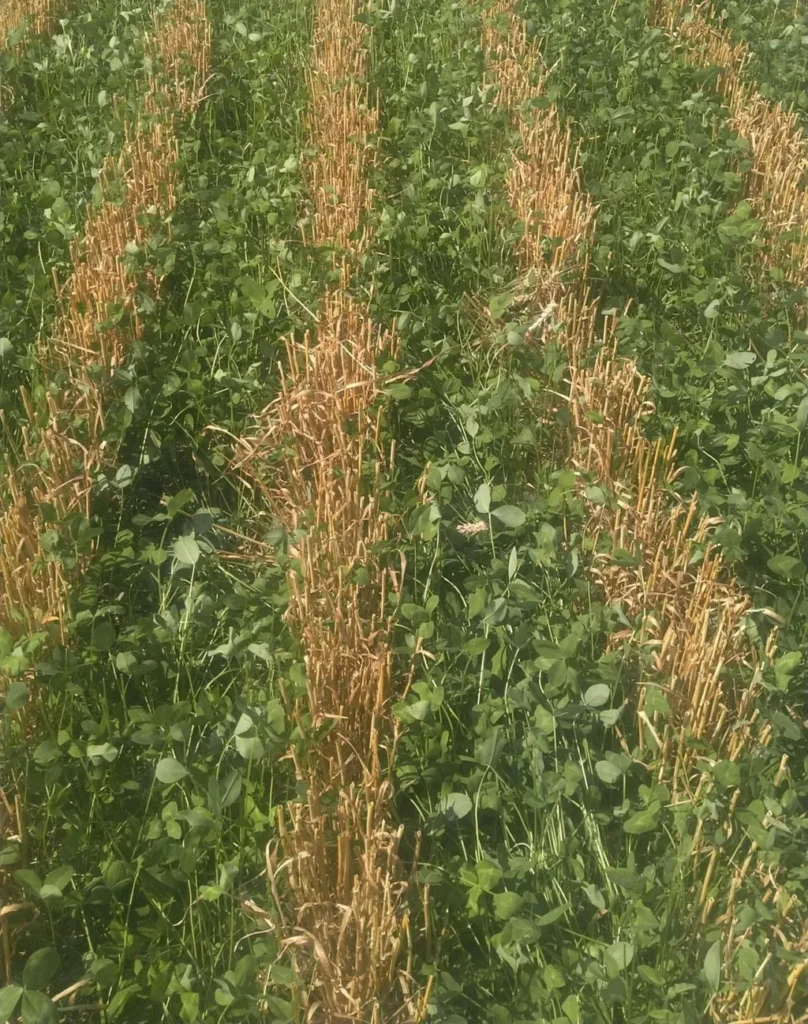In the heart of Russia’s Moscow Region, a groundbreaking study is unfolding that could revolutionize the way we approach forage crop cultivation, particularly in the face of aluminum toxicity—a silent enemy of agriculture. Irina A. Klimenko, a leading researcher at the Federal Williams Research Center of Forage Production & Agroecology, is spearheading this innovative research, which has recently been published in the esteemed journal ‘Frontiers in Bioscience-Elite’ (translated to English as ‘Frontiers in Bioscience-Excellence’).
Red clover, a vital forage crop known for its high quality and nitrogen-fixing capabilities, is often stymied by aluminum toxicity in acid soils, which cover more than a third of the world’s agricultural lands. Klimenko’s research aims to address this challenge head-on. “We wanted to develop red clover genotypes that could thrive in these challenging conditions,” Klimenko explains. “By combining in vitro selection techniques with advanced DNA markers, we’ve made significant strides in identifying and evaluating aluminum-tolerant red clover samples.”
The study involved germinating red clover seeds under various aluminum concentrations and selecting seedlings that showed tolerance to the toxic metal. These tolerant samples were then subjected to molecular analysis using three different DNA markers: sequence-related amplified polymorphism (SRAP), retrotransposon microsatellite amplified polymorphism (REMAP), and inter-primer binding site polymorphism (iPBS). The results were promising. “REMAP and iPBS markers proved to be particularly effective in distinguishing between tolerant and susceptible genotypes,” Klimenko notes. “The level of polymorphism and the polymorphism information content were significantly higher with these markers compared to SRAP.”
The implications of this research are far-reaching, particularly for the agricultural and energy sectors. Red clover’s ability to fix nitrogen and improve soil fertility makes it a valuable crop for sustainable agriculture. By developing aluminum-tolerant varieties, farmers can cultivate this crop in previously unproductive acid soils, thereby expanding their agricultural potential. Moreover, the use of advanced DNA markers like REMAP and iPBS can enhance the precision and reliability of breeding programs, leading to more robust and resilient crop varieties.
“This research opens up new possibilities for red clover breeding and beyond,” Klimenko says. “The methods we’ve developed can be applied to other crops facing similar challenges, paving the way for more sustainable and productive agriculture.”
As the world grapples with the impacts of climate change and soil degradation, studies like Klimenko’s offer a beacon of hope. By harnessing the power of biotechnology and molecular markers, we can develop crops that are not only resilient but also contribute to the overall health of our ecosystems. The future of agriculture lies in our ability to innovate and adapt, and Klimenko’s research is a testament to that spirit of innovation.

